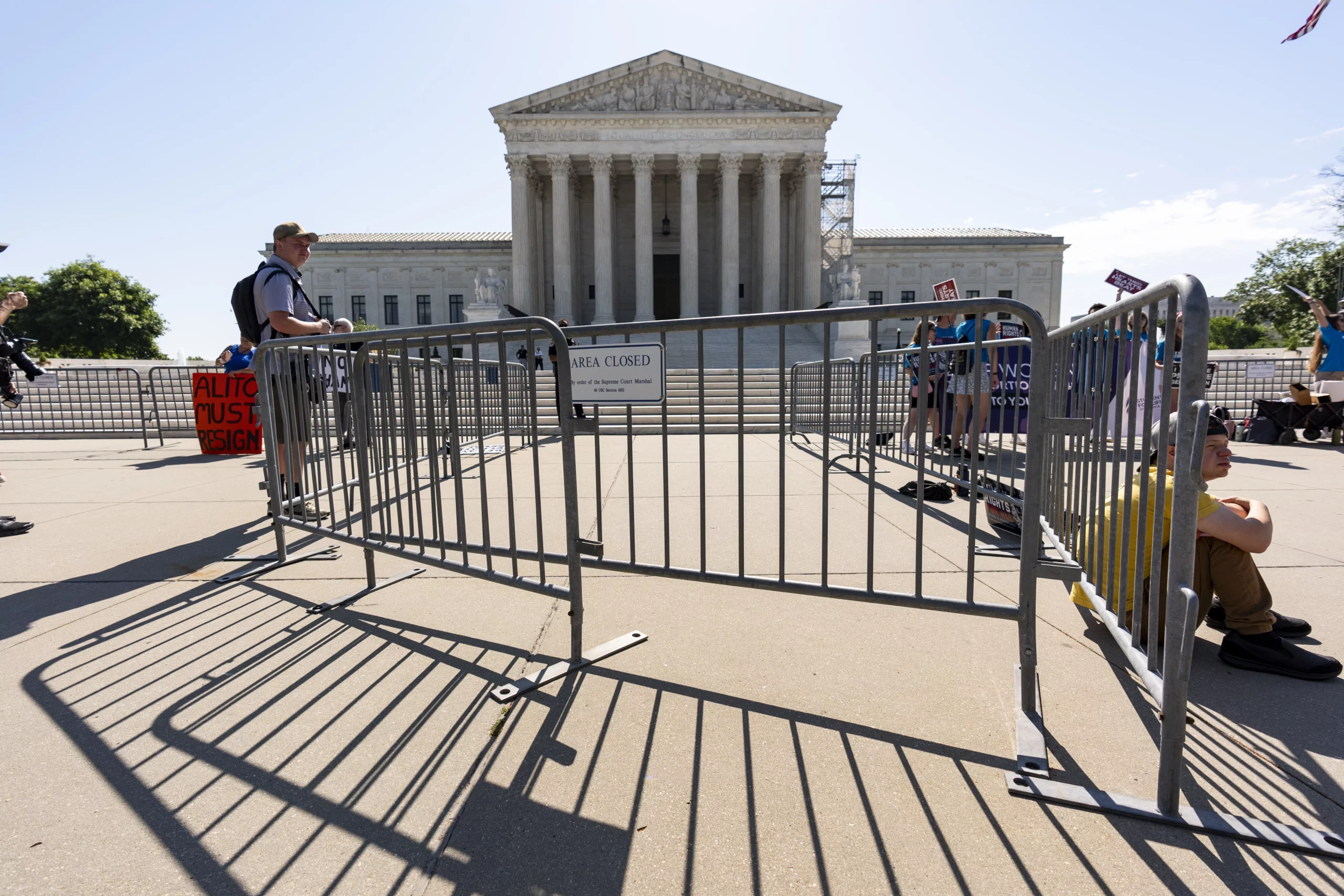

As their own end-of-June decision deadline approaches, the Supreme Court has yet to release 14 opinions likely to make waves.
Some of the most closely watched cases deal with former President Donald Trump‘s immunity, Jan. 6 defendants, the power of executive branch agencies, abortion, and the regulation of social media.
Here are some of the most pressing issues likely to be decided on this week:
Trump immunity
In probably the most anticipated decision of the term, the Supreme Court will decide whether or to what degree presidents have criminal immunity from actions taken while in office.
In Trump v. United States, the justices will rule on whether Trump has immunity from prosecution in a case concerning allegations made in an indictment by special counsel Jack Smith about Trump allegedly attempting to subvert the 2020 election.
Trump’s lawyers argue that all former presidents have immunity for actions taken while in office, and Congress must vote to convict in an impeachment process in order for former presidents to be stripped of immunity.
“Without Presidential Immunity, a President will not be able to properly function, or make decisions, in the best interest of the United States of America. Presidents will always be concerned, and even paralyzed, by the prospect of wrongful prosecution and retaliation, after they leave office. This could actually lead to extortion and blackmail of a President,” Trump posted to Truth Social last week. “A President has to be free to determine what is right for our Country with no undue pressure.”
Lower courts have ruled against Trump’s defense claims, but the appeals process has delayed prosecution thus far, and an outcome that allows the prosecution to move forward would not likely see an end to the case prior to the November election.
January 6 obstruction charges
The Supreme Court is also set to decide whether the Justice Department properly charged over 300 Jan. 6 defendants with obstruction.
Former police officer Joseph Fischer challenged a charge levied against him for going inside the Capitol with other protesters. The charge alleged that he obstructed Congress as they were certifying slates of Electoral College electors for the 2020 election.
Justices will need to decide whether an obstruction law can be applied to disrupting a public meeting rather than being more narrowly applied to the destruction of documents. Roughly 350 of the 1,350 Jan. 6 defendants were charged under the obstruction law, and Trump himself could benefit from an outcome favorable to those charged, as two of the four federal charges against the former president fall under the obstruction law.
Emergency abortions
In a challenge to Idaho’s abortion restrictions enacted after the overturn of Roe v. Wade, the Biden administration is arguing that the state law conflicts with federal law requiring hospitals to provide stabilizing care to patients.
In January, when it decided to hear the case, the Supreme Court allowed the abortion restrictions to continue to be enforced as the appeals process continued. This will be the first time the high court has ruled on abortion-related matters since Dobbs v. Jackson Women’s Health Organization, which handed the regulation of abortion back to states.
The case could serve as a way for the Supreme Court to reaffirm that decision, legitimizing the legislative action that state lawmakers made in enacting the law. It will also have major implications in an election year where Democrats are attempting to make abortion a major issue on the campaign trail.
Executive agency regulatory power
One of the most potentially impactful cases before the high court is the power of federal agencies, being run by unelected bureaucrats, to regulate major aspects of American life.
Supreme Court precedent for the past 40 years has given “deference” to agencies to regulate. Known as Chevron deference, courts are required to accept the conclusions made by federal agencies in their interpretation of the law when statutes are ambiguous.
The deference has been invoked by presidents ever since to grant legitimacy to a wide range of regulations imposed by federal agencies.
The current court has shown increasing skepticism of executive power, and many anticipate it will either weaken or overturn entirely the Chevron precedent.
Biden’s alleged social media coercion
The Supreme Court will decide whether the Biden administration violated the First Amendment when it pressured social media platforms to remove posts about the coronavirus pandemic and the 2020 election they claim to be false information.
CLICK HERE TO READ MORE FROM THE WASHINGTON EXAMINER
Two Republican attorneys general filed suit against the Biden administration for coercing social media companies, but the Justice Department is defending the pressure, saying the federal government should have the ability to communicate with the companies on matters of public concern and national security.
According to some observers, the justices appeared to lean in favor of the federal government in oral arguments.






